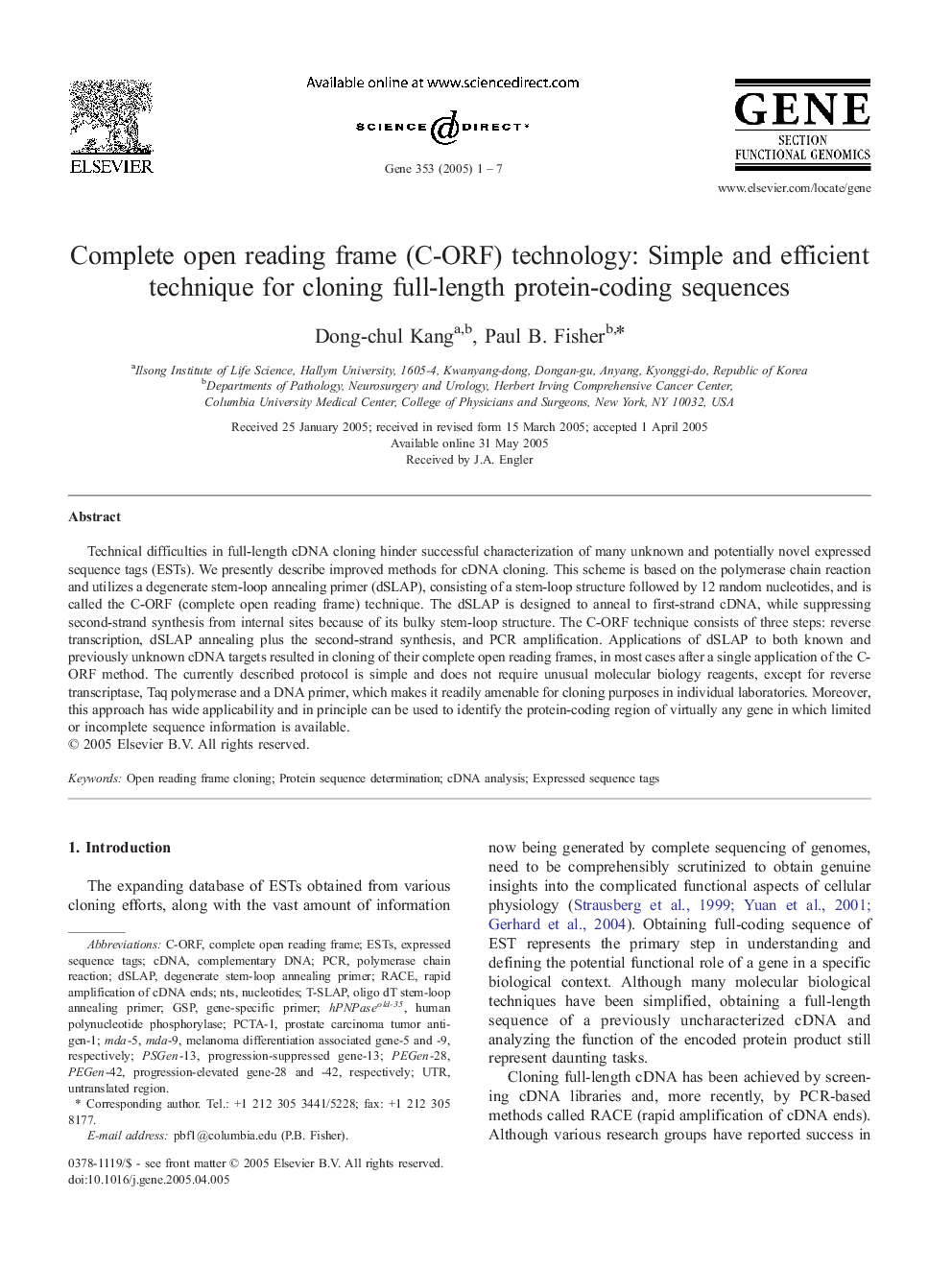| Article ID | Journal | Published Year | Pages | File Type |
|---|---|---|---|---|
| 9127051 | Gene | 2005 | 7 Pages |
Abstract
Technical difficulties in full-length cDNA cloning hinder successful characterization of many unknown and potentially novel expressed sequence tags (ESTs). We presently describe improved methods for cDNA cloning. This scheme is based on the polymerase chain reaction and utilizes a degenerate stem-loop annealing primer (dSLAP), consisting of a stem-loop structure followed by 12 random nucleotides, and is called the C-ORF (complete open reading frame) technique. The dSLAP is designed to anneal to first-strand cDNA, while suppressing second-strand synthesis from internal sites because of its bulky stem-loop structure. The C-ORF technique consists of three steps: reverse transcription, dSLAP annealing plus the second-strand synthesis, and PCR amplification. Applications of dSLAP to both known and previously unknown cDNA targets resulted in cloning of their complete open reading frames, in most cases after a single application of the C-ORF method. The currently described protocol is simple and does not require unusual molecular biology reagents, except for reverse transcriptase, Taq polymerase and a DNA primer, which makes it readily amenable for cloning purposes in individual laboratories. Moreover, this approach has wide applicability and in principle can be used to identify the protein-coding region of virtually any gene in which limited or incomplete sequence information is available.
Keywords
Related Topics
Life Sciences
Biochemistry, Genetics and Molecular Biology
Genetics
Authors
Dong-chul Kang, Paul B. Fisher,
